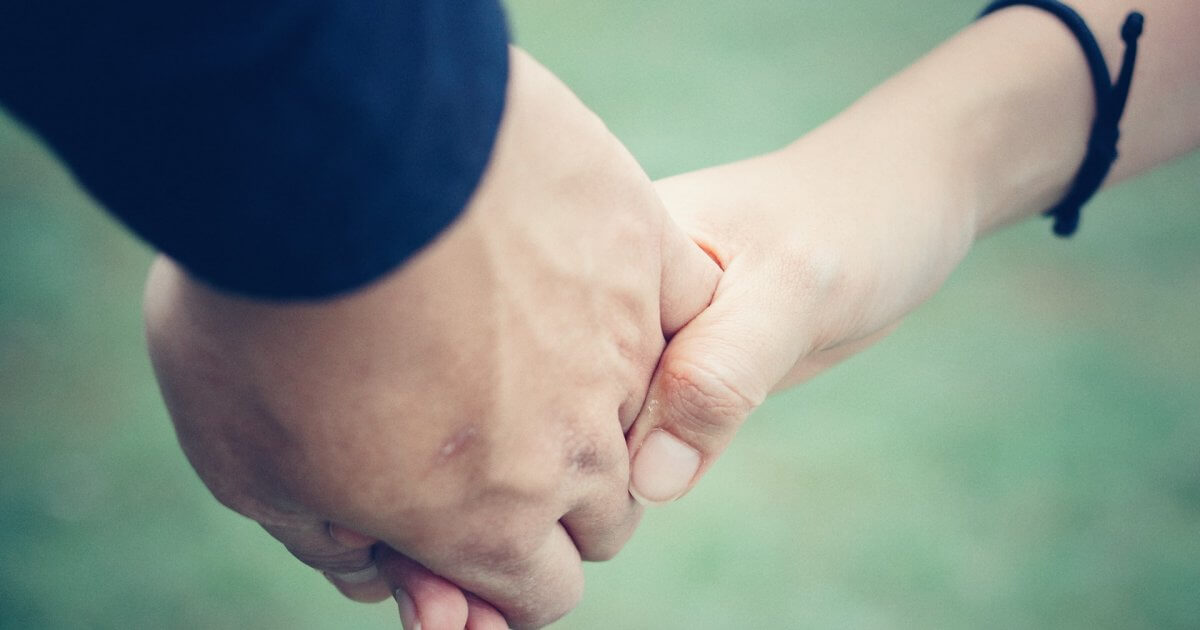Having Each Other's Backs
- How to search for love after losing a loved one is a topic faced by too many people in the SurvivorNet community.
- We were intrigued to see that TV personality Amanda Kloots, 39, and former The Bachelorette contestant Michael Allio, 37, have formed a friendship and support system after both losing their spouses.
- Allio lost his wife to breast cancer in 2019 while Kloots lost her husband in 2020 to COVID-19.
- Support groups, or connecting with just one other person, can make a huge difference in helping someone feel less alone during a difficult time.
Public speculation has been swirling about a new love connection between TV personality Amanda Kloots, 39, and former The Bachelorette contestant Michael Allio, 37, is swirling. The two share a tragedy in common they’ve both lost their spouses. While the romance rumors haven’t been confirmed by either of the two, Kloots has said her and Allio “have each other’s backs” when it comes to coping with their personal losses.
Read More
View this post on Instagram
How Support Makes a Difference
Whether you’re battling cancer, being a caretaker, or coping with losing a loved one, it’s important that everyone involved in a cancer journey receive the support they need. Support groups, or connecting with just one other person, can make a huge difference in helping someone feel less alone during a difficult time.
Connecting with those who have gone through shared experiences can really make an impact in how you cope as well as move forward with your life. For Doug Wendt, who lost his wife Alice to ovarian cancer, says he learned an important lesson in the difference between “moving on” and “moving forward” after losing a spouse to cancer.
Related: The Toughest Conversations: Losing a Spouse to Cancer
"We're never gonna move on, I don't even think I want to move on, but I do want to move forward," Doug told SurvivorNet in a previous interview. "That's an important distinction and I encourage anybody who goes through this journey as a caregiver and then has to face loss, to think very carefully about how to move forward."
Doug Wendt, who lost his wife Alice to ovarian cancer, shares how he coped with her passing
Breast Cancer: Prevention & Screening
Mammograms are the best tools in detecting signs of the disease and catching it early. Although it can be a nerve-racking experience for some women, the process itself only takes a few minutes and the long-term benefits can outweigh the slight discomfort. Generally, current guidelines recommend women start scheduling annual mammograms starting at 45-years-old, and continue until they're 54. After that, women can either choose to continue scheduling mammograms every year or choose to have them every two years. However, for women who are considered "high-risk," it's suggested they start screening earlier.
Related: It's Important To Continue Cancer Screenings Through COVID-19
The "high risk" category refers to women who have had a first-degree relative (like their mother) diagnosed with breast cancer, women who have the BRCA1 or BRCA2 gene mutation, or those who have had radiation on their chest in the past. For those who fit into this category it's recommended mammograms are scheduled starting at 30-years-old.
"If you haven't gone through menopause yet, I think it's very important that you have a mammogram every year," Dr. Connie Lehman, Chief of the Breast Imaging Division at Massachusetts General Hospital in Boston, previously told SurvivorNet. "After menopause, it may be perfectly acceptable to reduce that frequency to every two years. We all agree regular screening mammography saves lives. I want to be completely clear. If you are between 50 and 74 and you have not had a mammogram in the last two years, you are overdue. Please get a mammogram."
Dr. Connie Lehman explains when women should start scheduling mammograms
Learn more about SurvivorNet's rigorous medical review process.


